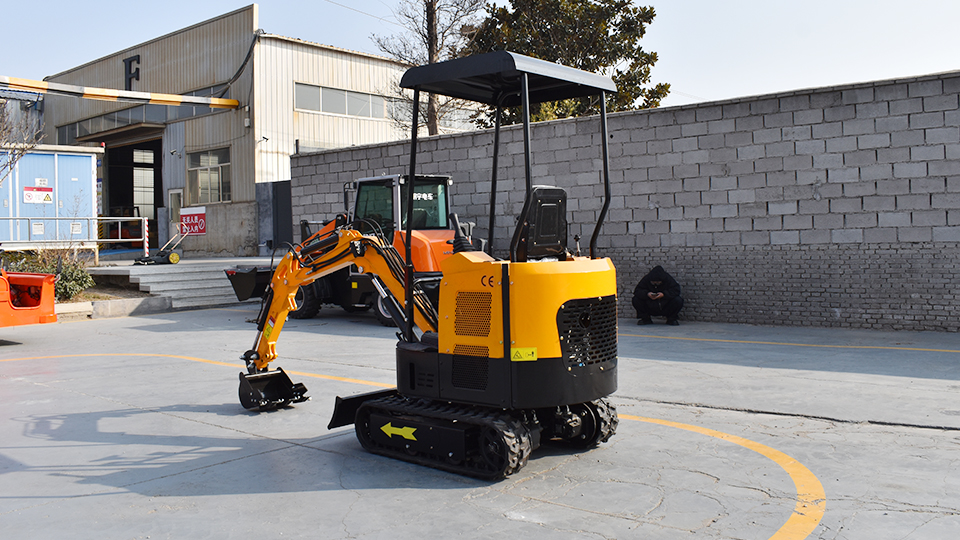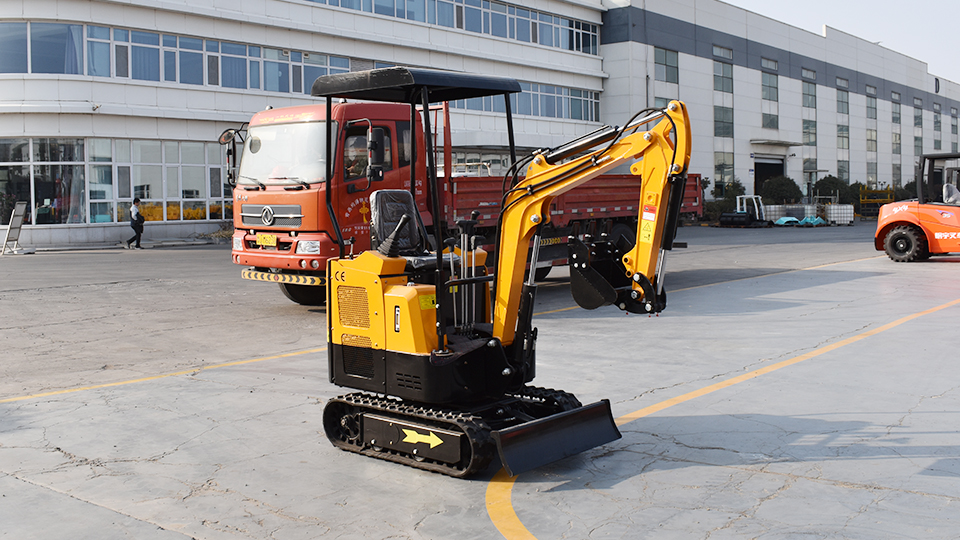Excavators, those powerful and versatile earthmoving machines, are indispensable assets for a vast array of construction, landscaping, and demolition projects. Whether you're digging foundations, trenching for utilities, grading land, or demolishing structures, an excavator provides the muscle and precision required to get the job done efficiently. However, acquiring an excavator comes with significant financial considerations. Understanding the costs associated with both renting and buying is crucial for effective project planning and budget management. This article delves deep into the factors influencing the price of excavator rental and purchase, providing a comprehensive guide to help you make informed decisions.
The Allure of Excavators: A Brief Overview
Before diving into the financial aspects, it's important to appreciate the capabilities that make excavators so valuable. These heavy-duty machines consist of a tracked or wheeled undercarriage, a rotating house (cab), and a boom, dipper stick (arm), and bucket assembly. Hydraulic power enables them to perform a wide range of tasks, often with the aid of various attachments like breakers, grapples, and augers.

Renting an Excavator: Flexibility and Short-Term Solutions
Renting an excavator offers a flexible and often cost-effective solution for projects with specific timelines or when the need for the machine is infrequent. Here's a breakdown of the factors influencing rental costs:
1. Excavator Size and Class:
This is the most significant determinant of rental price. Excavators are generally categorized by their operating weight, which directly reflects their size and capabilities.
Mini-Excavators (0-6 metric tons): These compact machines are perfect for residential projects, landscaping, plumbing, and working in confined areas. Their rental rates are the most affordable, typically ranging from $150 to $500 per day, $600 to $1,800 per week, and $1,800 to $5,000 per month. For instance, a small 3-ton mini-excavator might rent for around $250 per day.
Compact Excavators (6-10 metric tons): Offering a balance of power and maneuverability, these excavators are suitable for light to medium-duty tasks like trenching, small site work, and utility installations. Daily rental costs generally fall between $250 and $700, weekly rates range from $900 to $2,500, and monthly rentals can be between $2,500 and $7,000. A common 8-ton compact excavator could cost approximately $400 per day to rent.
Mid-Size Excavators (10-25 metric tons): These versatile machines are commonly used for general construction, road work, and medium-scale demolition. Rental prices increase significantly, ranging from $400 to $1,200 per day, $1,500 to $4,000 per week, and $4,500 to $12,000 per month. A 20-ton excavator might command a daily rental fee of around $800.
Large Excavators (25-50 metric tons): Designed for heavy construction, infrastructure projects, and mining, these powerful machines come with substantial rental costs. Expect to pay between $800 and $2,000+ per day, $3,000 to $7,000+ per week, and $9,000 to $20,000+ per month. A 35-ton excavator could easily cost $1,500 or more per day to rent.
Heavy Excavators (50+ metric tons): These behemoths are reserved for the most demanding tasks in mining and large-scale civil engineering. Rental costs can vary widely but often exceed $2,000 per day, with weekly and monthly rates proportionally higher.
2. Rental Duration:
Rental companies typically offer tiered pricing based on the length of the rental period. Daily rates are the highest, followed by weekly and then monthly rates, which offer the most cost-effective solution for longer projects. For example, renting a mini-excavator for a month might be significantly cheaper per day than renting it for just a few days.
3. Location:
Rental prices can fluctuate based on geographic location due to factors like local demand, the cost of doing business, and the availability of equipment. Urban areas or regions with high construction activity might see slightly higher rental rates compared to more rural areas.
4. Equipment Age and Condition:
Newer, well-maintained excavators might command a slightly higher rental price compared to older machines with more hours on them. However, reputable rental companies ensure their equipment is in safe and operational condition regardless of age.
5. Attachments:
The need for specialized attachments, such as hydraulic breakers, grapples, or augers, will add to the overall rental cost. Each attachment typically has its own daily, weekly, or monthly rental fee. For instance, renting a hydraulic breaker for a day might add an extra $50 to $200 to the base excavator rental cost.
6. Insurance and Fees:
Rental agreements usually include insurance coverage for the equipment, and the cost of this insurance is factored into the rental price. Additionally, there might be other fees, such as delivery and pickup charges, especially if the rental company needs to transport the excavator to and from the job site.

7. Market Demand and Seasonality:
Rental prices can also be influenced by seasonal demand. For example, during peak construction seasons in spring and summer, rental rates might be slightly higher due to increased demand.
Buying an Excavator: Long-Term Investment and Ownership Costs
Purchasing an excavator represents a significant long-term investment. While it eliminates recurring rental fees, it introduces a new set of ownership costs that need careful consideration:
1.Initial Purchase Price:
The upfront cost of buying an excavator is substantial and varies dramatically based on size, brand, features, and whether it's new or used.
New Mini-Excavators: Prices can range from $40,000 to $100,000+. A basic 3-ton model might cost around $50,000, while a more feature-rich or larger mini-excavator could exceed $80,000.
New Compact Excavators: Expect to pay between $80,000 and $180,000+. An 8-ton machine might be priced around $120,000.
New Mid-Size Excavators: Prices can range from $150,000 to $400,000+. A popular 20-ton excavator could cost upwards of $250,000.
New Large Excavators: These machines can cost anywhere from $300,000 to $1,000,000+. A 35-ton excavator might have a price tag of $500,000 or more.
New Heavy Excavators: Prices for these massive machines can easily exceed $1,000,000, with some models costing several million dollars.
Used Excavators: The price of a used excavator depends on its age, hours of operation, condition, and maintenance history. A well-maintained used excavator can offer significant cost savings compared to a new model. Prices can range from a few thousand dollars for older, high-hour mini-excavators to hundreds of thousands of dollars for relatively recent, low-hour large excavators. Thorough inspection and due diligence are crucial when considering a used machine.
2. Financing Costs:
Most businesses finance the purchase of an excavator through loans or leasing agreements. This introduces interest payments and other financing costs that need to be factored into the overall expense. Interest rates and loan terms will vary depending on creditworthiness and the lending institution.
3. Depreciation:
Like all heavy equipment, excavators depreciate in value over time due to wear and tear and obsolescence. The rate of depreciation depends on factors like usage, maintenance, and market demand. Understanding the expected depreciation can help in long-term financial planning and resale value estimation.
4. Maintenance and Repairs:
Owning an excavator entails ongoing maintenance costs, including regular servicing (oil changes, filter replacements, lubrication), preventative maintenance (inspections, component checks), and potential repairs due to wear and tear or unexpected breakdowns. These costs can be significant, especially as the machine ages and accumulates more operating hours.
5. Insurance:
Protecting your investment with adequate insurance coverage is essential. Excavator insurance premiums will vary based on the machine's value, usage, and the level of coverage.
6. Storage and Transportation:
Depending on the size of the excavator and the nature of your projects, you might incur costs related to storing the machine when it's not in use and transporting it between job sites. This could involve the purchase or rental of trailers and the fuel costs associated with transportation.
7. Property Taxes and Registration Fees:
In some jurisdictions, you might be subject to property taxes or registration fees for owning heavy equipment like excavators.
Making the Right Choice: Rent vs. Buy
The decision of whether to rent or buy an excavator hinges on several key factors specific to your needs and circumstances:
Consider Renting If:
Project Frequency: You only need an excavator for occasional or short-term projects.
Capital Availability: You have limited upfront capital and prefer to avoid a large initial investment.
Project Diversity: Your projects require different sizes or types of excavators. Renting allows you to access the specific machine you need for each job.
Maintenance Concerns: You want to avoid the responsibilities and costs associated with maintenance and repairs.
Storage Limitations: You lack adequate space to store an excavator when it's not in use.
Trial Period: You are considering purchasing a specific model but want to try it out on a project first.
Consider Buying If:
Frequent Use: You regularly require an excavator for ongoing or long-term projects.
Long-Term Cost Savings: Over the long run, ownership can be more cost-effective than continuous renting.
Customization Needs: You require specific attachments or modifications that might not be readily available with rental units.
Asset Building: Owning an excavator builds equity in your business.
Control and Availability: You have immediate access to the machine whenever you need it, without relying on rental availability.
Tax Benefits: Depending on your location and business structure, there might be tax advantages associated with equipment ownership.
A Practical Example:
Let's consider a small construction company undertaking a 3-month residential foundation project requiring a 20-ton excavator.
Renting: A monthly rental rate for a 20-ton excavator might be around $6,000. Over three months, the total rental cost would be $18,000, plus potential delivery and pickup fees.
Buying: A new 20-ton excavator could cost $250,000. Even with financing, the monthly payments, insurance, and potential initial maintenance costs would likely exceed the monthly rental fee in the short term. However, after the loan is paid off, the company owns the asset and only incurs operating and maintenance costs.
In this scenario, renting might be more financially viable for a single, short-term project. However, if the company anticipates needing a 20-ton excavator for numerous future projects, purchasing could be a more strategic long-term investment.
Conclusion:
The cost of renting or buying an excavator is influenced by a multitude of factors, primarily the size and type of machine. Renting offers flexibility and lower upfront costs for short-term or infrequent needs, while purchasing provides long-term ownership and potential cost savings for frequent users. A thorough analysis of project requirements, budget constraints, and long-term equipment needs is essential to make the most financially sound decision. By understanding the various cost components associated with both options, businesses and individuals can effectively plan their earthmoving endeavors and choose the acquisition method that best aligns with their operational and financial goals.
Post time:Sep-25-2020
